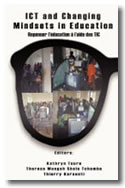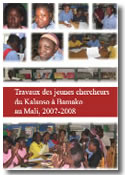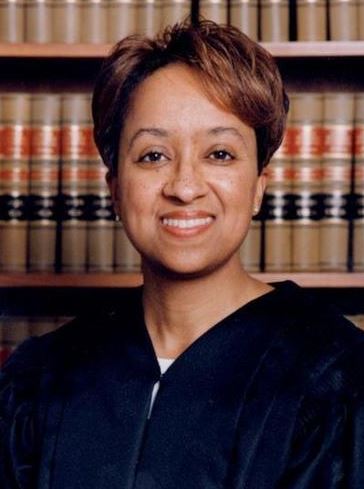‘Civil rights babies’ moved forward without a map May 13, 2013
Black children of the 1950s and 1960s are “babies of the civil rights movement,” according to Judge Lisa White Hardwick.
Each of us was profoundly influenced by the struggles and sacrifices of people like the Rev. Martin Luther King Jr. and must own the responsibility to make King’s “dream” of equality and and opportunity for all a reality.
“That’s part of my identity, my DNA,” said Hardwick, the first black woman on the Missouri Court of Appeals Western District. “I think about it every day.”
She takes personally “the fierce urgency of now” in King’s 1963 “I Have A Dream” speech. Hardwick credits her parents, Kansas City Public Schools and the community that raised her to settle for nothing less than excellence.
But she’s also aware that if it weren’t for the civil rights movement, she wouldn’t have been able to go to the University of Missouri-Columbia School of Journalism. A degree from there in 1982 got her into Harvard Law School.
Because there were so few blacks at MU, she felt alone and a deep responsibility to do well to create a path for others to follow. An earlier push for diversity at Harvard made that campus more welcoming. The real world, however, is more like MU. She worked in Washington, D.C., for a while before returning to Kansas City to be the first black attorney at Shook Hardy & Bacon.
The stress of being the first black person in jobs previously closed to African-Americans has been enormous for the babies of the movement.
“You just feel like you don’t have a road map,” said Hardwick, who joins others for this column series looking at 50 years of civil rights advances while sharing a vision for the next half-century. “You feel like the people who could be your mentors don’t understand what you’re going through. It’s pretty lonely. But it helps you to be at your very best.”
That insistence pushed her to serve seven years on the Jackson County Legislature, propelled her to become the first black woman Jackson County Circuit Court judge and then the appellate judge. She also is compelled to go to Kansas City schools to speak to students and participate in career days to help black kids know that they can be a judge, too.
She knew after King was assassinated in 1968 that she wanted to contribute to the movement for justice. “I felt I owed a debt to the people who walked those picket lines,” Hardwick said.
“I feel like we still have something to prove,” she said. “We need to take advantage of the opportunities that were given to us.”
But Hardwick worries now about black children and the next 50 years.
“I worry that the next generation of African-Americans won’t understand the struggle that created these opportunities,” Hardwick said. It’s not there to “motivate them to really challenge themselves to be the very best. To me it was huge.”
There also isn’t a critical mass of black people in the college and career pipeline to fill jobs that African-Americans like Hardwick have risen to today. Students seem more focused on a media-driven culture.
“There just seems to be a malaise,” she said. “They don’t seem to be able to put pop culture in its proper place.”
Hardwick suggested intensive training academies like one the National Bar Association runs to help prepare youths for law careers. She also said crime has to be vanquished so that safety and living past 20 are not kids’ chief concerns.
The school system has to improve to get all students ready for college and careers. “In the movement today, education is the rocket fuel,” Hardwick said. Equality and equal opportunity remain the dream for 2063.
Black people must keep alive the history and “articulate the need” so that everyone works to meet it. It’s possible unless we forget “the fierce urgency of now.”
By LEWIS W. DIUGUID
The Kansas City Star
To reach Lewis W. Diuguid, call 816-234-4723 or send email to ldiuguid@kcstar.com.
Source: www.kansascity.com/2013/05/12/4231771/civil-rights-babies-moved-forward.html




Leave a Reply